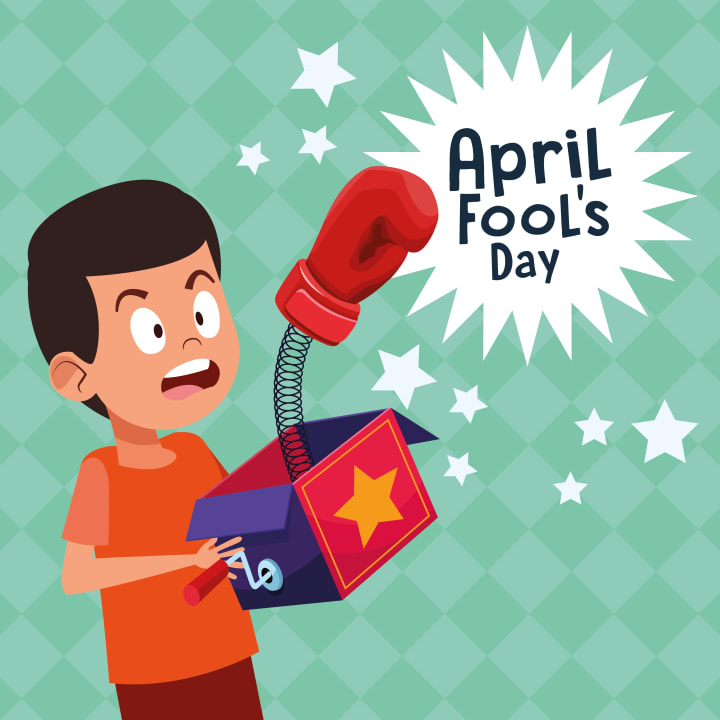April Fools’ Day: The History, Theories, and Traditions
Origins of April Fools' Day in France: "Poisson d'Avril" Tradition
April Fools’ Day: The History, Theories, and Traditions
April 1st is a day that is widely celebrated around the world, where people play pranks and practical jokes on each other. It is known as April Fools’ Day, also known as All Fools' Day. Despite its popularity, the exact origins of this day remain shrouded in mystery. In this article, we will explore the history, theories, and traditions surrounding April Fools’ Day.
Introduction:
April Fools’ Day is a day that is celebrated in many countries around the world, with various cultures and traditions surrounding the occasion. It is a day where people play pranks and practical jokes on each other. However, despite its widespread popularity, the origins of April Fools’ Day are uncertain. There are various theories surrounding the history of this day, and its traditions may vary from one culture to another. In this article, we will take a closer look at the history, theories, and traditions of April Fools’ Day.
The History of April Fools’ Day:
The exact origins of April Fools’ Day are unknown.
The exact origins of April Fools’ Day are unknown. However, the earliest recorded mention of this day dates back to the 1500s. The Council of Trent in 1563 decreed that the Gregorian calendar should be adopted by the Catholic world. French King Charles IX issued the Edict of Roussillon a year later, stating that the New Year would begin on January 1. Previously, the New Year had been celebrated on different days in different parts of the country, often around Easter. Those who either stuck to the old traditions or could be tricked into celebrating New Year's Day on April 1 were considered to be April fools.
The earliest recorded mention of April Fools’ Day dates back to the 1500s.
Another theory suggests that April Fools’ Day has its roots in ancient Roman festivals. One such festival was Hilaria, a day dedicated to the worship of the goddess Cybele, where people would play pranks on each other. The festival was celebrated on March 25th, which was also the day of the vernal equinox.
The Council of Trent in 1563 decreed that the Gregorian calendar should be adopted by the Catholic world.
Another theory suggests that April Fools’ Day originated in France in the 16th century, during the reign of King Charles IX. In France, the day was known as "Poisson d'Avril" or "April Fish." The tradition involved people attaching paper fish to each other's backs without the other person noticing. The pranksters would then shout "Poisson d'Avril!" to let the victim know they had been fooled.
French King Charles IX issued the Edict of Roussillon a year later, stating the New Year would begin on January 1.
In Scotland, April Fools’ Day is celebrated over two days, known as Hunt the Gowk Day on April 1st and Taily Day on April 2nd. On Hunt the Gowk Day, people would send someone on a foolish errand, while on Taily Day, people would attach a "kick me" sign to someone's back. In England, April Fools’ Day was traditionally called "Hunt the Gawk" or "Hunt the Gowk." The word "gowk" refers to a cuckoo bird, which is known for laying its eggs in other birds' nests.
Previously, it had been celebrated on different days in different parts of the country, often around Easter.
In some parts of the world, such as India and Iran, April Fools’ Day is celebrated on a different date, usually around the start of the new year in March or April. In some countries, such as Spain and Latin American countries, April Fools’ Day is celebrated on December 28th, known as the Day of the Holy Innocents. The Day of the Holy Innocents commemorates the biblical story of King Herod ordering the massacre of all male infants in Bethlehem, in an attempt to kill the baby Jesus.

In conclusion,
April Fools’ Day is an annual celebration on April 1st where people play pranks and practical jokes on each other. The exact origins of this day are unknown, but it has been recorded since the 1500s. One theory suggests that it originated from the adoption of the Gregorian calendar by the Catholic world, while another theory suggests that it has its roots in ancient Roman festivals. In France, it was known as "Poisson d'Avril" or "April Fish" and involved people attaching paper fish to each other's backs. Scotland celebrates over two days, while England traditionally called it "Hunt the Gawk" or "Hunt the Gowk." In some parts of the world, it is celebrated on a different date, usually around the start of the new year in March or April, and in Spain and Latin American countries, it is celebrated on December 28th, known as the Day of the Holy Innocents. In some countries, pranks and jokes are only considered acceptable until noon, after which they are considered bad luck. Regardless of its origins and various traditions, April Fools’ Day remains a popular and lighthearted occasion for people to play harmless jokes on one another.





Comments
There are no comments for this story
Be the first to respond and start the conversation.